- Home
- Philip Pullman
Daemon Voices Page 3
Daemon Voices Read online
Page 3
What I want to say next has to do with an attitude I suppose one could call tact. I mean that we who tell stories should be modest about the job, and not assume that just because the reader is interested in the story, they’re interested in who’s telling it. A storyteller should be invisible, as far as I’m concerned; and the best way to make sure of that is to make the story itself so interesting that the teller just…disappears. When I was in the business of helping students to become teachers, I used to urge them to tell stories in the classroom—not read them from a book, but get out and tell them, face to face, with nothing to hide behind. The students were very nervous until they tried it. They thought that under the pressure of all those wide-open eyes, they’d melt into a puddle of self-consciousness. But the brave ones tried it, and they always came back next week and reported with amazement that it worked, they could do it. What was happening was that the children were gazing, not at the storyteller, but at the story she was telling. The teller had become invisible, and the story worked much more effectively as a result.
Of course, you have to find a good story in the first place, but we can all do that. There are thousands of good stories in the world, and it’s perfectly possible for every young teacher to acquire three dozen or so and to know them well enough to tell them all, once a week, throughout a school year. Responsibility again: I salute all those who gather folk tales and give them back to us. Jane Yolen’s marvellous Favorite Folktales from Around the World is a splendid example of this. So are the collections made by Alan Garner, by Kevin Crossley-Holland, by Neil Philip, by Katharine Briggs. The oral traditions of storytelling once seemed to be on the verge of dying out, but they didn’t die; they’re being kept alive by new generations of storytellers. And many of those who tell stories these days get their stories not from Granny or from Old Bob down in the Red Lion, but from books, because that’s where they’ll find them.
And there’s nothing exclusive about stories, nothing snobbish, nothing stand-offish. They make themselves at home anywhere. Nowadays a storyteller in Ireland can learn Australian stories, an African storyteller can tell Indonesian stories, a storyteller in Poland can tell Inuit stories. Should we storytellers make sure we pass on the experience of our own culture? Yes, of course. It’s one of our prime duties. But should we only tell stories that reflect our own background? Should we refrain from telling stories that originated elsewhere, on the grounds that we don’t have the right to annex the experience of others? Absolutely not. A culture that never encounters any others becomes first inward-looking, and then stagnant, and then rotten. We are responsible—there’s that word again—for bringing fresh streams of story into our own cultures from all over the world, and welcoming experience from every quarter, and offering our own experience in return.
And as I say, invisibility is important here. When it comes to actually putting the story across, the best storytellers are the tactful ones, those who don’t burden the audience with their own self-consciousness, whether it’s just plain nervousness at speaking in public or a complex intellectual post-modernist angst about the unreliability of signifiers and the slippery nature of the relationship between text and utterance. Whatever it is, we should put all that aside and try to say what happened, and who did what, and what happened next. That’s all. The way to deal with feeling self-conscious is to pretend that we don’t. Don’t let’s burden other people with our own embarrassment. That’s what I mean by responsibility here: it’s a form of tact. It helps us remember to be courteous to our readers and listeners.
And that leads me to the next thing I want to talk about, which is the matter of responsibility to the audience. Knowing that our readership includes children—notice, I don’t say consists of children, because every children’s book is also read by adults—but knowing that there are children reading us, what should our attitude be? Where does our responsibility lie?
Some commentators—not very well-informed ones, but they have quite loud voices—say that children’s books shouldn’t deal with matters like sex and drugs, with violence, or homosexuality, or abortion, or child abuse. Taboos do change over time: only a couple of generations ago, it was rare to find a children’s book that confronted divorce. Against that, I’ve heard it said that children should be able to find in a children’s book anything that they might realistically encounter in life. Children do know about these things: they talk about them, they ask questions about them, they meet some of them, sometimes, at home; shouldn’t they be able to read about them in stories?
My feeling is that whatever we depict in our stories, we should show that actions have consequences. An example of this came up with Melvin Burgess’s Carnegie Medal–winning novel Junk (1998). The predictable journalists said the predictable things, and the book created a storm of controversy. I defended Burgess on the grounds that in this book, he shows exactly the sort of responsibility that I’m talking about. It’s a profoundly moral story, because it shows that temptation is truly tempting, and—as I said—that actions have consequences.
There are other kinds of responsibility to the audience too. Some writers feel that they shouldn’t take too bleak a view of the world, that however dark and gloomy the story they’re telling, they should always leave the reader with a glimpse of hope. I think that has something to be said for it, but we should remember that tragedy is uplifting too, if it shows the human spirit at its finest. “The true aim of writing,” said Samuel Johnson, “is to enable the reader better to enjoy life, or better to endure it.” Children need both those kinds of help, just as grown-ups do.
What’s true about our responsibility towards depicting life in general is true of our responsibility when it comes to depicting people. There’s a sentence I saw not long ago from Walter Savage Landor, which is the best definition of this sort of responsibility I’ve ever seen: “We must not indulge in unfavourable views of mankind, since by doing it we make bad men believe that they are no worse than others, and we teach the good that they are good in vain.” Easy cynicism is no more truthful than easy optimism, though it seems to be so to the young.
So in depicting characters who struggle to do good, and do it, or who are tempted to be weak or greedy, but refrain, we the storytellers are providing our readers with friends whose own good behaviour, and whose high valuation of the courage or steadfastness or generosity of others, provides an image of how to behave well; and thus, we hope, we leave the world at least no worse than we found it.
But what about our responsibility to our readers in a more simple and basic sense? They write to us—many, many of them write. Should we respond to them all? I don’t think there’s any doubt in the mind of the writer who receives the first fan letter they’ve ever got. Of course they respond. It’s wonderful! Someone out there loves me! But as you become better known, the number creeps up and creeps up, and you find yourself spending more and more time sending every individual child a reply. Should you carry on responding in the same sort of way, no matter how many of them write, no matter how much time it takes up?
It’s difficult. The contact between the storyteller and the reader is a very close and personal one—more so from the reader’s side, because they know both who they are and who I am, whereas I only know who I am. But there’s no frustration quite as baffling as that felt by the writer who receives a wonderful letter from a child who’s forgotten to enclose his or her address. They long for a reply—they deserve a reply—I want to reply—they’ll think I’m mean and arrogant if I don’t reply…
But what can we do about it? Well, not all that long ago, there was nothing we could do. But I had a delightful letter recently from a child somewhere in America who told me all about herself, how she loved my books, how she played the violin, and so on; but the publisher had forwarded it without including the envelope, and there was no address. My son suggested we try Google, so we typed in the child’s name and presently there it was—I almost felt it should h
ave been announced with the words “Lo and behold”—a school in Pennsylvania was presenting a concert featuring a violin solo by…and there was her name. Amazing! So at least I could write to her, care of the school, and I did.
But it does take time, and as our books reach more and more readers, our time gets more and more eaten into. I don’t mind spending a few minutes searching for things like that, while I can still manage to do so; but I’m less conscientious, shall we say, about the letters that say, “I had to do this book report and we had to write to an author and I picked you because no one else did. You have to send me a reply or I will get a bad grade also can I have a photograph and a signed copy of your book The Golden Spyglass here are my questions. Where do you get your ideas from? What is your favourite colour? Do you have any pets? What is a spyglass?” And there was a good one recently from a boy who said, “We have been studying obituaries in school and we have to write the obituary of someone famous and I would like to do you. Could you tell me how you would like to die and can you make it as dramatic as possible?” I told him that I would prefer to let nature take its course. They all do get a reply, eventually, but it takes time.
Almost the last in my list of responsibilities is this: we have to pay attention to what our imagination feels comfortable doing. In my own case, for reasons too deeply buried to be dug up, I have long felt that realism is a higher mode than fantasy; but when I try to write realistically, I move in boots of lead. However, as soon as the idea comes to me, for example, of little people with poison spurs who ride on dragonflies, the lead boots fall away and I feel wings at my heels. For many reasons (which, as I say, are beyond the reach of disinterment) I may regret this tendency of my imagination, but I can’t deny it. Sometimes our nature speaks more wisely than our convictions, and we’ll only work well if we listen to what it says.
But now I come to the most important responsibility of all. It’s the one that’s hardest to explain, but also the one I feel most strongly about. The last responsibility I want to look at is one that every storyteller has to acknowledge, and it’s a responsibility that trumps every other. It’s a responsibility to the story itself. I first became conscious of this when I noticed that I’d developed the habit of hunching my shoulders to protect my work from prying eyes. There are various equivalents of the hunched shoulder and the encircling arm: if we’re working on the computer, for example, we tend to keep a lot of empty space at the foot of the piece, so that if anyone comes into the room we can immediately press that key that takes us to the end of the file, and show nothing but a blank screen. We’re protecting it. There’s something fragile there, something fugitive, which shows itself only to us, because it trusts us to maintain it in this half-resolved, half-unformed condition without exposing it to the harsh light of someone else’s scrutiny, because a stranger’s gaze would either make it flee altogether or fix it for good in a state that might not be what it wanted to become.
So we have a protective responsibility: the role of a guardian, almost a parent. It feels as if the story—before it’s even taken the form of words, before it has any characters or any incidents clearly revealed, when it’s just a thought, just the most evanescent little wisp of a thing—as if it’s come to us and knocked at our door, or just been left on our doorstep. Of course we have to look after it. What else could we do?
What I seem to be saying here, rather against my will, is that stories come from somewhere else. It’s hard to rationalise this, because I don’t believe in a somewhere else; there ain’t no elsewhere, is what I believe. Here is all there is. It certainly feels as if the story comes to me, but perhaps it comes from me, from my unconscious mind—I just don’t know; and it wouldn’t make any difference to the responsibility either way. I still have to look after it. I still have to protect it from interference while it becomes sure of itself and settles on the form it wants.
Yes, it wants. It knows very firmly what it wants to be, even though it isn’t very articulate yet. It’ll go easily in this direction and very firmly resist going in that, but I won’t know why; I just have to shrug and say, “OK—you’re the boss.” And this is the point where responsibility takes the form of service. Not servitude; not shameful toil mercilessly exacted; but service, freely and fairly entered into. This service is a voluntary and honourable thing: when I say I am the servant of the story, I say it with pride.
And as the servant, I have to do what a good servant should. I have to be ready to attend to my work at regular hours. I have to anticipate where the story wants to go, and find out what can make the progress easier—by doing research, that is to say: by spending time in libraries, by going to talk to people, by finding things out. I have to keep myself sober during working hours; I have to stay in good health. I have to avoid taking on too many other engagements: no man can serve two masters. I have to keep the story’s counsel: there are secrets between us, and it would be the grossest breach of confidence to give them away. (I sometimes think that the only way I could survive a creative writing class would be to write two stories—a fake one which I’d bring out to share with the class and be critiqued, and a real one which I’d work on in silence and keep to myself).
And I have to be prepared for a certain wilfulness and eccentricity in my employer—all the classic master-and-servant stories, after all, depict the master as the crazy one who’s blown here and there by the winds of impulse or passion, and the servant as the matter-of-fact anchor of common sense; and I have too much regard for the classic stories to go against a pattern as successful as that. So, as I say, I have to expect a degree of craziness in the story.
“No, master! Those are windmills, not giants!”
“Windmills? Nonsense—they’re giants, I tell you! But don’t worry—I’ll deal with them.”
“As you say, master—giants they are, by all means.”
No matter how foolish it seems, the story knows best.
And finally, as the faithful servant, I have to know when to let the story out of my hands; but I have to be very careful about the other hands I put it into. My stories have always been lucky in their editors—or perhaps, since I’m claiming responsibility here, they’ve been lucky they had me to guide them to the right ones. I suppose one’s last and most responsible act as the servant of the story is to know when one can do no more, and when it’s time to admit that someone else’s eyes might see it more clearly. To become so grand that you refuse to let your work be edited—and we can all think of a few writers who got to that point—is to be a bad servant, not a good one. Well, that’s all I know about responsibility.
But I haven’t quite finished, because I don’t want anyone to think that responsibility is all there is to it. It would be a burdensome life, if the only relation we had with our work was one of duty and care. The fact is that I love my work. There is no joy comparable to the thrill that accompanies a new idea, one that we know is full of promise and possibility—unless it’s the joy that comes when, after a long period of reflection and bafflement, of frustration and difficulty, we suddenly see the way through to the solution; or the delight when one of our characters suddenly says something far too witty for us to have thought of ourselves; or the slow, steady pleasure that comes from the regular accumulation of pages written; or the honest satisfaction that rewards work done well—a turn in the story deftly handled, a passage of dialogue that reveals character as well as advancing the story, a pattern of imagery that unobtrusively echoes and clarifies the theme of the whole book.
These joys are profound and long-lasting. And there is a joy too in responsibility itself—in the knowledge that what we’re doing on earth, while we live, is being done to the best of our ability, and in the light of everything we know about what is good and true. Art, whatever kind of art it is, is like the mysterious music described in the words of the greatest writer of all, the “sounds and sweet airs, that give delight and hurt not.” To bear the responsibility o
f giving delight and hurting not is one of the greatest privileges a human being can have, and I ask nothing more than the chance to go on being responsible for it till the end of my days.
THIS TALK WAS GIVEN AT THE SOCIETY OF AUTHORS’ CHILDREN’S WRITERS AND ILLUSTRATORS GROUP CONFERENCE, LEEDS, SEPTEMBER 2002.
There are other responsibilities, of course. In the years since I wrote this piece, the world of bookselling and publishing has changed enormously, and if I were giving this talk today I’d certainly say something about the need to preserve the best aspects of publishing (close editorial attention, the preservation of a midlist and a backlist, a mutual respect and understanding of common interest between author and publisher) and of bookselling (the knowledge and enthusiasm of individual booksellers, combined with the ability to exercise them free of overbearing commercial pressures towards the bland sameness of a narrow range of stock). The world of books is not a collection of random units of self-interest, but a living ecology. Or it used to be, and should be still. Whenever we can see something going on in any field where we can make a difference on the side of virtue, we have a responsibility to make it.
The Writing of Stories
MAKING IT UP AND WRITING IT DOWN
On the choices an author has to make as he tells a story, with special reference to points of view, time frames and story-patterns, using as an example the opening of The Golden Compass and other parts of His Dark Materials

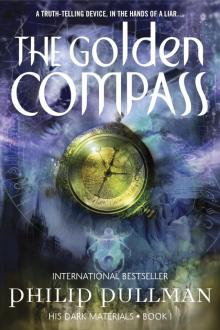 The Golden Compass
The Golden Compass The Ruby in the Smoke
The Ruby in the Smoke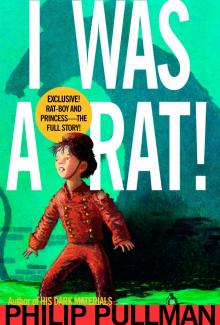 I Was a Rat!
I Was a Rat!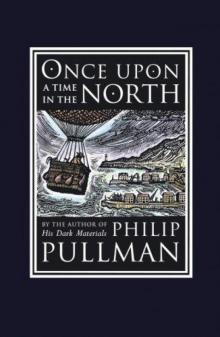 Once Upon a Time in the North
Once Upon a Time in the North The Tiger in the Well
The Tiger in the Well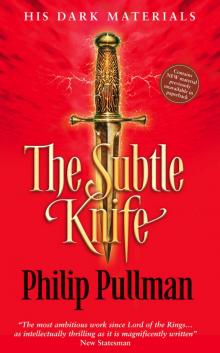 The Subtle Knife
The Subtle Knife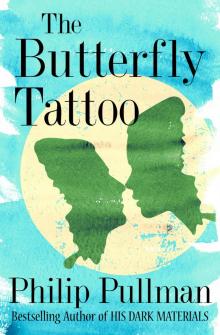 The Butterfly Tattoo
The Butterfly Tattoo Lyra's Oxford
Lyra's Oxford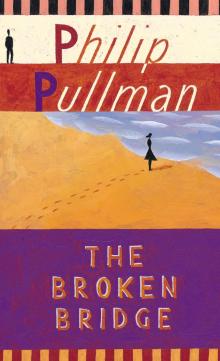 The Broken Bridge
The Broken Bridge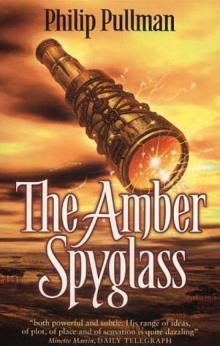 The Amber Spyglass
The Amber Spyglass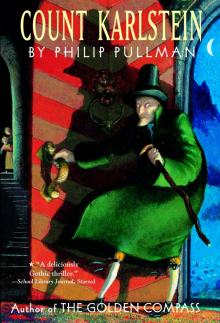 Count Karlstein
Count Karlstein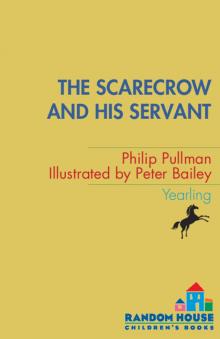 The Scarecrow and His Servant
The Scarecrow and His Servant The Shadow in the North
The Shadow in the North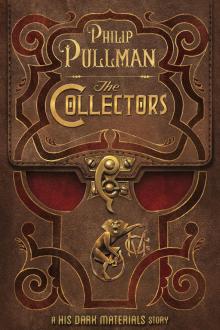 The Collectors
The Collectors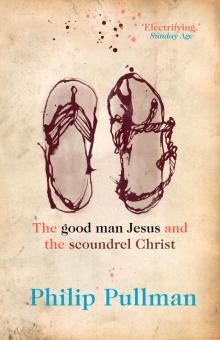 The Good Man Jesus and the Scoundrel Christ
The Good Man Jesus and the Scoundrel Christ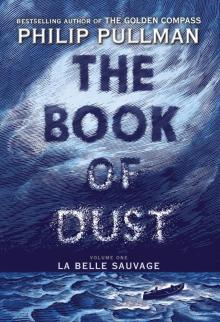 La Belle Sauvage
La Belle Sauvage The Tin Princess
The Tin Princess The Firework-Maker's Daughter
The Firework-Maker's Daughter The Book of Dust: The Secret Commonwealth (Book of Dust, Volume 2)
The Book of Dust: The Secret Commonwealth (Book of Dust, Volume 2)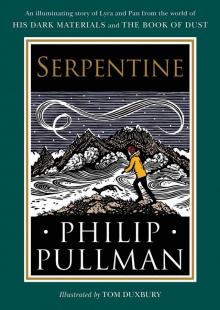 Serpentine
Serpentine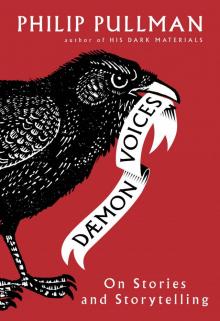 Daemon Voices
Daemon Voices The Amber Spyglass: His Dark Materials
The Amber Spyglass: His Dark Materials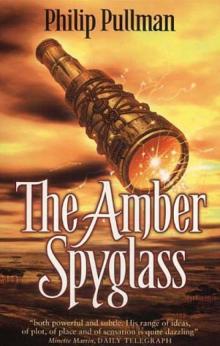 The Amber Spyglass hdm-3
The Amber Spyglass hdm-3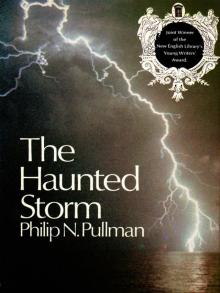 The Haunted Storm
The Haunted Storm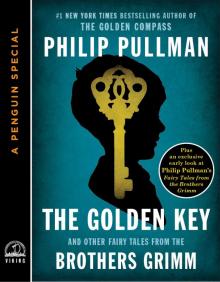 The Golden Key
The Golden Key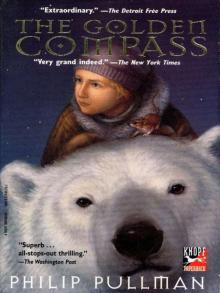 His Dark Materials 01 - The Golden Compass
His Dark Materials 01 - The Golden Compass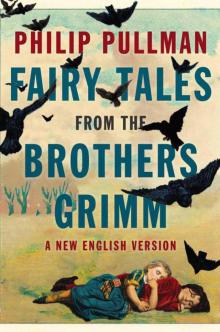 Fairy Tales from the Brothers Grimm: A New English Version
Fairy Tales from the Brothers Grimm: A New English Version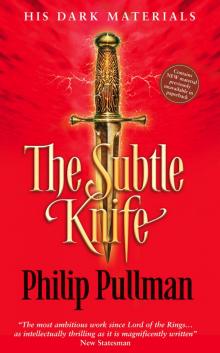 His Dark Materials 02 - The Subtle Knife
His Dark Materials 02 - The Subtle Knife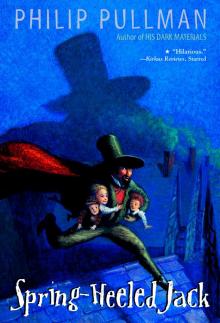 Spring-Heeled Jack
Spring-Heeled Jack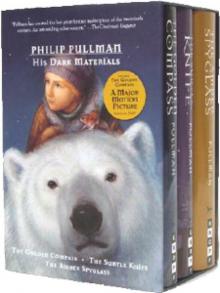 The Golden Compass hdm-1
The Golden Compass hdm-1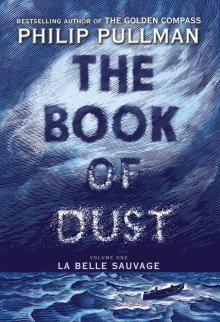 The Book of Dust, Volume 1
The Book of Dust, Volume 1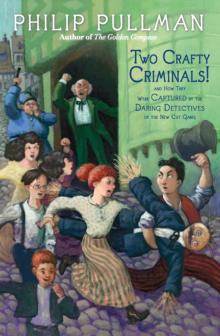 Two Crafty Criminals!
Two Crafty Criminals!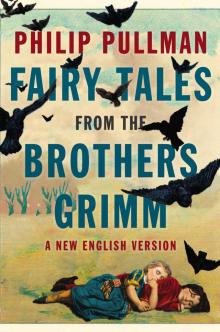 Fairy Tales from the Brothers Grimm
Fairy Tales from the Brothers Grimm The Subtle Knife: His Dark Materials
The Subtle Knife: His Dark Materials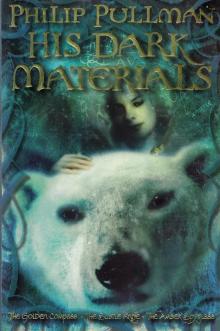 His Dark Materials Omnibus
His Dark Materials Omnibus The Golden Compass: His Dark Materials
The Golden Compass: His Dark Materials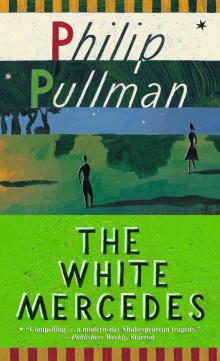 The White Mercedes
The White Mercedes